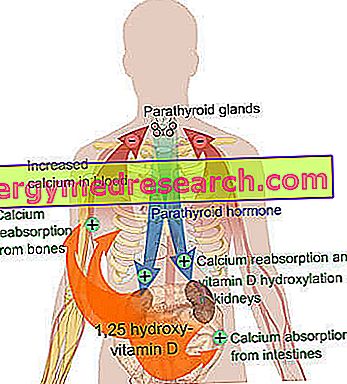Origin of honey
Honey is the product of the transformation, carried out by bees, of the secretions of flowers (nectar) and the secretions of some insects (honeydew).

The honey, stored by the bees in the cells of the combs, is extracted by centrifugation, left to decant in special containers and returned to jars.
These are the only processes that allow you to keep the characteristics of the product intact to offer it exactly as the bees got it.
A precious food
Honey deserves to come into our tables every day. Energy food composed of simple sugars (fructose-glucose) easily digestible, contains: enzymes, vitamins, trace minerals, antibiotic-like substances and substances that can promote growth processes.
The sectors of the organism in which honey exerts its benefits:
- First respiratory tract: decongestant, soothing cough
- Muscles: increased physical power and endurance
- Heart: cardiotropic action
- Liver: protective and detoxifying action
- Digestive system: protective, stimulating, regulating action
- Kidneys: diuretic action
- Blood: antianemic action
- Bones: fixation of calcium and magnesium
We recommend a constant consumption of 20/30 g / day instead of refined sugar, unless contraindications (eg diabetes).
- Linden honey: in case of nervous excitability, insomnia
- Thyme and eucalyptus honey: in the case of respiratory infections
- Citrus honey: antispasmodic and sedative properties
- Rosemary honey: hepatic insufficiency, colescistopathies
- Chestnut honey: tonic, remineralizing
Not everyone knows that ...

Heating it to 45 ° C the honey returns to liquid, but it must be borne in mind that, once this temperature is exceeded, the enzymes, vitamins and other active substances are damaged. In the honey industry, pasteurization is widespread, which is able to firmly liquefy honey but, due to the high temperatures reached, it causes considerable biological damage to the product.
NB: to taste the honey it is advisable, for those who used it as a sweetener in milk or other drinks, never to add it when they are hot, but only and always when they are drinkable, because too high a temperature subtracts most of the honey from honey its properties.
There are many types of honey, different in color, aroma and crystallization; the variety of honeys depends on the source from which the nectar originates, the production area and weather variations.
Honey is very well preserved but it is important not to let it age too much to avoid loss of properties and organoleptic characteristics. The maximum recommended storage is two years.
All about honey
X Problems with video playback? Reload from YouTube Go to Video Page Go to Wellness Destination Watch the video on youtubeNon-EU honey
Also in the beekeeping sector we have witnessed in recent years the invasion of the market by non-EU products.
Products, which given their low cost, are increasingly attracting consumers. However, as often happens, lowering the price means lowering the quality of the product and not only, cases of extra-community honeys not suitable for consumption in the EU have been reported because they come from hives treated with pesticides forbidden for years now. Quality, typicality and food security are the weapons of Italian honey against the offensive of these countries.
- Sugar or honey? which is better?
- Honey and diabetes
- Honey in cosmetics



